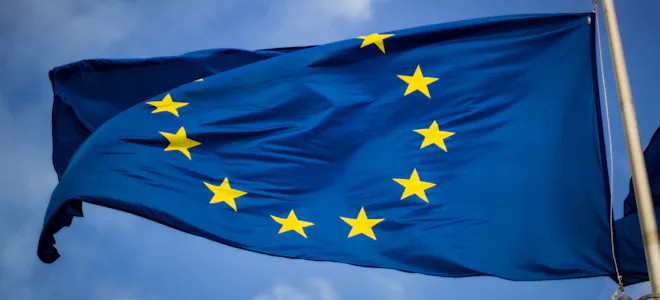What Does Brexit Mean for Your Pharmacy?
Independent pharmacists are facing Brexit challenges including drug availability, staffing and legislation - and how you can help your pharmacy business to prepare.
Since the referendum in 2016, the UK government has spent time and resources determining what Brexit will actually look like. We may be closer to knowing the answers to some of the biggest problems, but the effects of the UK leaving the EU will be felt for many generations to come.
Table of Contents
As a pharmacy owner, there are some aspects to consider when it comes to operating and growing your business in the post-Brexit UK. From ensuring a consistent supply of medicines through to accessing pharmacy qualifications, there are many concerns facing pharmacy business owners during this transitional period.
Keep reading to learn what Brexit is likely to mean for your pharmacy business, and how to equip yourself with the knowledge and funding you need to succeed.
Access to Medicines and Equipment
Economic turbulence sparked by both the COVID-19 pandemic and Brexit has resulted in supply shortages for many industries. The pharmacy sector is among those still overcoming a period of supply chain issues causing shortages of medical products and equipment.
As a pharmacy owner, you'll know that it has been difficult to obtain many common medicines, including painkillers and blood pressure medication. This has meant many pharmacists are already paying inflated costs for common medicines.
Most people should be able to get their prescriptions filled as normal - although possibly with a brand that is not the one they may be used to. Some pharmacists have resorted to sending patients back to their GPs to ask for a different prescription. Generic and biosimilars may be available. To avoid a shortage in your pharmacy business, you should look to identify medications and equipment that is likely to be difficult to acquire and explore other options and brands, as well as stock up while products are available.
Authorisation for new medicines
The single European marketing authorisation is a valuable measure that reduces cost and complexity for manufacturers, facilitating simpler drug production and regulation.
European marketing authorisations are issued by the European Medicines Agency, currently based in London but almost certain to leave the country as a consequence of Brexit. Any new standalone UK national authorisation procedure may delay access to new medicines for patients in the UK - and will take considerable time to set up.
The Royal Pharmaceutical Society has pledged to continue to work with partners both within and outside the European Union to ensure the UK remains a leader in pharmacy practice and pharmaceutical science.
Research and international cooperation should be able to continue - but this might change, depending on the details of the Brexit deal. For the most up-to-date information about Brexit and how it might affect your business, check out the government website.
Authorisation for work
The Royal Pharmaceutical Society is also working to ensure that pharmacists and pharmaceutical scientists from all countries can continue to work in pharmacies within the UK. To learn about the legal implications of Brexit might be for pharmacy regulation, check out the Society's dedicated Brexit guidance section on their website.
The NHS depends on people from overseas. In fact, over 55,000 of the NHS’s total 1.2 million workforce are EU citizens. These numbers make it look as though the free movement of key people will have to be allowed. Brexit is not expected to affect the registration status of doctors and pharmaceutical professionals already registered.
If you or a member of your staff come from overseas, it should be possible to continue work without interruptions.
Research
There may be effects on pharmacy research if direct financial support from the EU is curtailed. EU funding may have been essential in recent years to support research to drive the development of medicines and to improve patient care.
In addition, the free movement of pharmaceutical scientists to and from the EU has enabled the UK to enhance an already extensive research capacity. Pharmaceutical research may be put at a disadvantage if appropriate measures are not put in place
What about the costs?
As an independent pharmacist, your chief Brexit worries may focus on the need to provide a wide range of medicines for your customers which might become difficult to obtain if Brexit causes difficulties with supply.
You may need to find external funding to allow you to stockpile key items, or to approach new sources of supply with which you do not currently have a trading relationship.
At Rangewell, we have financial specialists working to support the pharmaceutical sector and recognise the scale of the task and of the level of funding you may require.
Fortunately, we understand the challenges and solutions. For example, as a retailer, a Merchant Cash Advance might be a simple way to raise additional funds to invest in stock. The advance is repaid when customers pay by card with a percentage deduction made from each transaction.
You might also consider an overdraft replacement facility, or Line of Credit, which could provide a flexible reserve of funds that you can call on as you wish - which might be the kind of flexible solution you would need if a supply of key medicines became suddenly available.
Getting the right kind of pharmacy loan is essential. By calling on us at Rangewell you can be sure of getting the most cost-effective ways to raise the finance you need.
Brexit is certainly coming - and business disruption could be following after. To safeguard the future of your business, you must get the financial solutions you need organised today. Plus, find additional support for your pharmacy with our Pharmacy Hub - from advice for buying a pharmacy to information about dedicated equipment finance for pharmacies, we've got you covered.

